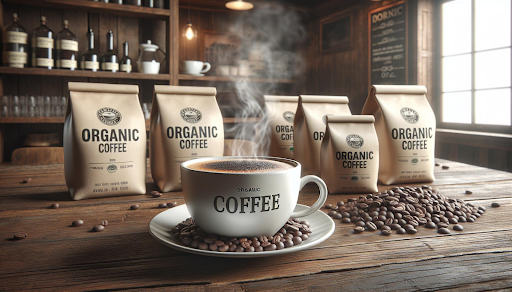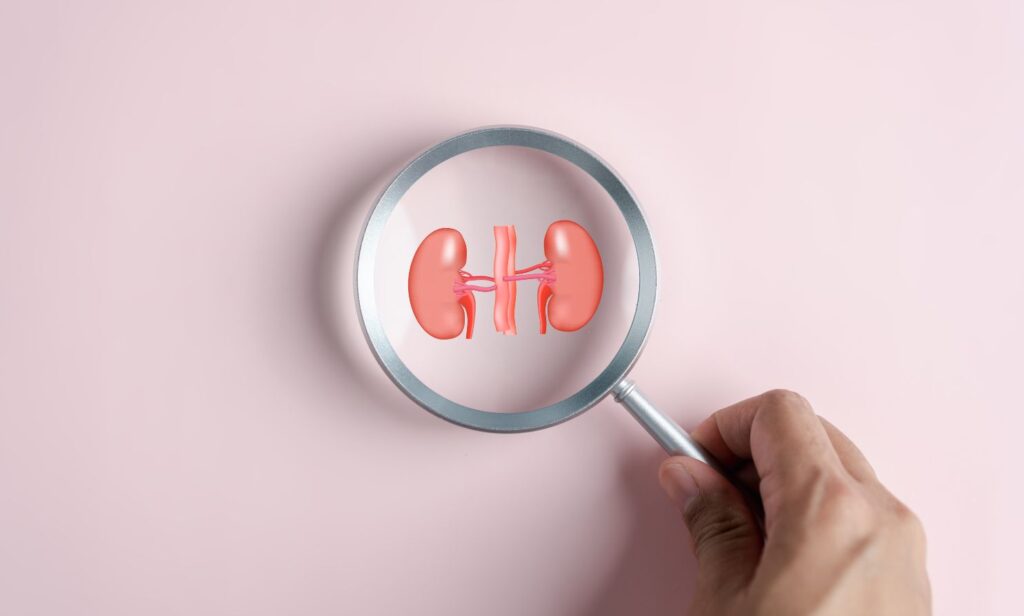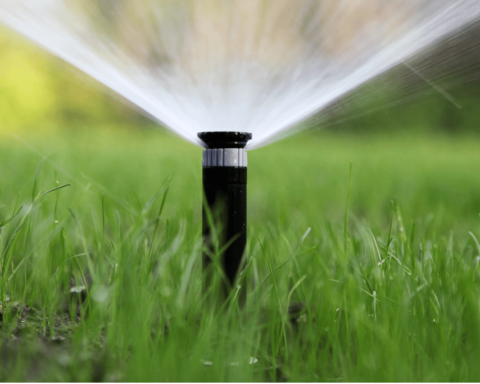If you’re wondering how much organic coffee costs in the UK, you’re not alone. With the rise in health-conscious choices and sustainable living, organic coffee has become a popular option for many. However, the price can vary significantly depending on where you shop and what brand you choose.
The cost of organic coffee can differ widely from supermarket shelves to speciality coffee shops. Factors like the origin of the beans, the roasting process, and even the packaging can influence the price. Understanding these variables can help you make an informed decision and save you some money.
Key Takeaways
- Price Range: Organic coffee in the UK generally costs between £15 and £30 per kilogramme, influenced by factors such as bean origin, roasting process, and packaging.
- Health and Environmental Benefits: Organic coffee is free from synthetic chemicals, promoting better health and environmental sustainability. Due to natural cultivation methods, it often boasts richer flavours.
- Certification and farming methods: Organic coffee requires certification, ensuring no GMOs or synthetic pesticides are used. Sustainable farming practices enhance biodiversity and soil health.
- Retail Options: These are available at various prices through supermarkets, speciality shops, and online retailers like Amazon and Pact Coffee, which offer convenience and variety.
- Popular Brands: Some top organic coffee brands in the UK include Percol Coffee, Origin Coffee, Pact Coffee, Union Hand-Roasted Coffee, and Cafédirect. Each offers unique flavours and ethical sourcing.
- Value for Money: While more expensive, organic coffee provides long-term benefits such as improved taste, reduced health risks, and support for sustainable and ethical farming practices.
Understanding Organic Coffee
Organic coffee has gained traction in the UK for its health benefits, environmental impact, and rich flavour. To appreciate its value, consider what makes coffee organic and its distinct advantages.
What Makes Coffee Organic?
- Organic Certification: Organic coffee requires certification, ensuring the coffee beans are grown without synthetic pesticides, herbicides, or fertilisers. Certifying bodies like the Soil Association in the UK and USDA Organic in the US validate the standards.
- Farming Practices: Farmers use organic farming methods that promote biodiversity, soil health, and ecological balance. Examples include crop rotation, natural compost, and shade-grown techniques, which reduce pests and improve bean quality.
- No GMOs: Organic coffee cultivation prohibits genetically modified organisms (GMOs), guaranteeing that the beans’ genetic makeup remains pure and unaltered.
- Sustainable Practices: Sustainability is crucial in organic coffee production. Farmers use water conservation methods and renewable energy to reduce their environmental footprint.
Benefits of Organic Coffee
Health Advantages
Organic coffee contains fewer harmful chemicals, reducing the risk of ingesting toxic substances. It’s rich in antioxidants, which can help improve overall health.
Environmental Impact
By avoiding synthetic chemicals, organic coffee farming supports soil fertility and reduces water contamination. This practice also promotes biodiversity and wildlife conservation.
Better Taste
Many consumers find organic coffee tastes better. The absence of chemicals allows the coffee’s natural flavours to develop fully, resulting in a richer, more aromatic cup.
Fair Trade
Organic coffee often aligns with fair trade principles. Fairtrade certifications ensure farmers receive fair compensation, improving their livelihoods and supporting community development.
Price Range Of Organic Coffee In The UK
Organic coffee prices in the UK vary significantly depending on several factors. Generally, you can expect to pay between £15 and £30 per kilogram. This range reflects differences in sourcing, quality, and branding.
Factors Influencing Price:
Bean Origin: Coffee beans from renowned regions like Ethiopia or Colombia often command higher prices. For instance, Ethiopian Yirgacheffe can cost upwards of £25 per kilogramme, while beans from less famous regions may cost around £15 per kilogram.
Roasting Process: Some roasters use more sophisticated techniques to bring out specific flavours in organic coffee. Due to the time and precision involved, a small-batch roasted organic coffee might cost closer to £30 per kilogramme.
Packaging: Sustainable and eco-friendly packaging can also add to the cost. Coffee packaged in recyclable or compostable materials usually falls on the higher end of the price spectrum, often around £25 to £30 per kilogramme.
Price Comparison by Retailer:
| Retailer | Price Range (per kg) | Notes |
| Balance Coffee | £15 – £22 | Affordable and accessible organic coffee options |
| Waitrose | £18 – £25 | Higher-end organic varieties, often with detailed sourcing information |
| Speciality Coffee Shops | £20 – £30 | Premium, small-batch roasted, and eco-packaged options |
Subscription Services:
Subscription services offer another way to enjoy organic coffee at various price points. For example, Pact Coffee offers organic options starting at £25 per kilogramme on a subscription basis, and it delivers it straight to your door.
Premium Brands:
Premium brands like Union Hand-Roasted Coffee can cost between £22 and £28 per kilogram. These brands often focus on ethical sourcing, high-quality beans, and artisanal roasting.
Discounts and Offers:
Look out for seasonal discounts and offers. Retailers like Amazon and supermarkets often have sales on organic coffee. During such events, organic coffee may be priced as low as £12 per kilogramme.
For the best value, consider your priorities: bean origin, roasting process, packaging, or ethical considerations.
Value for Money: Is Organic Coffee Worth It?
Choosing organic coffee often involves weighing the financial implications against potential benefits. When evaluating whether organic coffee is a wise investment, you’re likely to consider both upfront costs and long-term advantages.
Quality Versus Cost
Due to its certified farming practices, organic coffee typically demands a higher price tag. The absence of synthetic fertilisers and pesticides contributes to this increased cost. Farmers often invest more time and effort in maintaining soil health and using eco-friendly methods, which can enhance the coffee’s flavour profile.
Consumers frequently report that organic coffee boasts richer, more complex tastes than conventionally grown beans.
In the UK, the best organic coffee typically costs between £15 and £30 per kilogram. By comparison, non-organic coffee could cost as low as £7 to £20 per kilogram. Retailers like Tesco and Sainsbury’s stock various organic brands, such as Percol Coffee and Grumpy Mule, providing options across this price spectrum.
Subscription services like Pact Coffee or Origin Coffee often offer fresh, high-quality organic beans delivered to your door. While convenient, these services may charge premiums that reflect both the quality and convenience factors.
Investing in organic coffee might seem costly, but many enthusiasts argue it’s worth it for the improved taste and assured farming practices. You pay for both the superior drink and the confidence in sustainable production.
Long-Term Benefits
Consuming organic coffee extends beyond immediate taste and satisfaction. There are several long-term benefits to consider. First, organic farming methods promote environmental sustainability. Using natural pest control and fertilisation protects biodiversity and reduces pollution. Supporting these practices helps conserve ecosystems for future generations.
Health benefits can also be significant. Organic coffee is free from synthetic pesticides and fertilisers, reducing exposure to potentially harmful chemicals. Although research is ongoing, some studies suggest that conventionally grown coffee can contain residues of these substances, which could be ingested over time.
Economically, supporting organic coffee helps sustain small-scale farmers. These producers often focus on quality and sustainability over volume, driving better practices and contributing to fairer labour conditions. By choosing organic coffee, you support these ethical initiatives directly.
Moreover, the long-term benefits extend to lifestyle changes. Developing a preference for quality, sustainably produced coffee can influence other purchasing decisions, promoting a more eco-conscious consumption pattern. Over time, this shift can lead to broader environmental impacts, reducing your overall carbon footprint and encouraging more responsible consumption habits.
Although the initial cost of organic coffee can be higher, the long-term benefits—like environmental sustainability, reduced health risks, and support for ethical farming practices—contribute to its value. If you prioritise these factors, organic coffee proves a worthwhile choice.
Conclusion
As you navigate the world of organic coffee in the UK, weighing your options carefully is essential. With various retailers and subscription services offering unique blends and ethical sourcing, you will surely find something that suits your taste and values. The initial higher cost of organic coffee is offset by its numerous benefits, including enhanced flavour, health advantages, and support for sustainable farming practices. By choosing organic coffee, you’re indulging in a superior coffee experience and contributing to a more sustainable and ethical world.
Frequently Asked Questions
What is driving the popularity of organic coffee in the UK?
The rising popularity of organic coffee in the UK is primarily driven by health and sustainability concerns. Consumers are increasingly looking for options that support their well-being and the environment.
Why is organic coffee more expensive than regular coffee?
Organic coffee is more expensive due to higher production costs, including organic farming practices, certification processes, and ethical sourcing. These factors contribute to its premium pricing.
Where can I buy organic coffee in the UK?
You can purchase organic coffee from online stores like balance coffee, Amazon UK, The Coffee Officina, and Beanies Coffee Co. Physical stores include Tesco, Sainsbury’s, Whole Foods Market, Holland & Barrett, and local coffee roasters.
What are some well-known organic coffee brands in the UK?
Popular organic coffee brands include Percol Coffee, Origin Coffee, Pact Coffee, Union Hand-Roasted Coffee, Grumpy Mule, and Cafédirect. Each brand is known for its unique blends and ethical sourcing.
Is organic coffee worth the higher cost?
Yes, organic coffee offers long-term benefits like enhanced flavour, environmental sustainability, health advantages, and support for ethical farming practices. These factors make it a worthwhile investment for many consumers.
How do organic coffee prices vary across retailers?
Organic coffee prices can vary significantly depending on the retailer. Options are available through subscription services, premium brands, and different online and physical stores. Comparing prices across these options can help you find the best deal.
What are the benefits of consuming organic coffee?
Organic coffee provides numerous benefits, including reduced exposure to harmful chemicals, support for small-scale farmers, enhanced flavour, and the potential to influence eco-conscious consumption habits.
Keep an eye for more latest news & updates on Essential Tribune!








